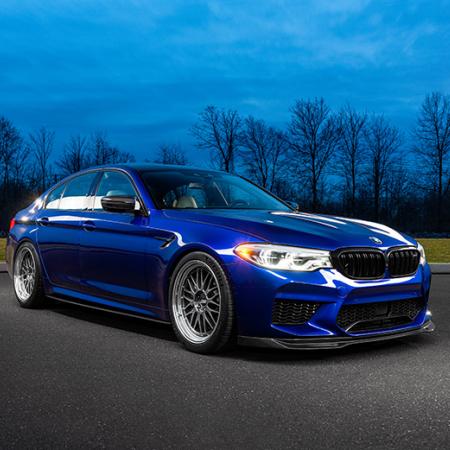US prosecutors are cracking down on a burgeoning black market industry built on the fact that luxury cars sell for much more in China than they do in America (typically about three times as much). In these schemes, US residents buy cars locally and ship them to buyers in China for a quick and tidy profit. Lily Kuo of the Quartz website explains how it's done.
Car makers, naturally, hate the schemes, which violate rules barring car dealerships from selling cars for export, cut out their followup revenue from servicing and other fees, and undercut automakers official operations overseas. These export operations often sell the vehicles for a little less than what official dealerships in China would offer. Here’s how this arbitrage opportunity works.
1. Raise some money, say a few million dollars
Exporters buy a few, or in some cases, thousands, of luxury cars that will then sell in China for much more. In part because of import duties and other taxes, luxury cars can cost several times more in China than they do in other markets. The US sticker price for a BMW X5 SUV, for instance, is a little over $56,000 but in China its price is about $153,00. (Even when the extra taxes are stripped out, Chinese drivers are still paying over a third more for imported luxury cars.)
So how much do you need? One prolific couple that operated several export businesses with offices in Tennessee used funds from a tire business, according to US authorities, to buy and sell 2,000 cars worth over $80 million in the US. According to the Wall Street Journal (which has a paywall, by the way), the couple, hasn’t been charged with any crime yet but had some of their assets and 47 cars seized last month.
2. Find a straw buyer on Craigslist
Exporters recruit buyers via online forums like Craigslist with ads offering to pay several hundred dollars for a few hours of work. This recruit buys one or two cars—usually with a cashier’s check provided by the exporter—registers it under his or her own name and then drops it off at a nearby parking lot, according to court filings reviewed by the Journal. Now that the car is registered under someone’s name in the US, the exporter is able to circumvent export restrictions on new cars by selling the vehicle as a used one. (Selling used cars overseas is technically legal and not uncommon.)
3. Ship the car to China
The cars are often transported by truck to a busy port in another state, where busy customs officials “ordinarily judge whether a vehicle is ‘used’ simply by checking whether the vehicle is titled” in a different state, the New Hampshire Bar Association warned this June. (New Hampshire is a particularly attractive state for these schemes because there’s no sales tax or mandatory insurance.)
4. Hire a lawyer
Whether these exports are actually legal depends on who you ask. Only two cases have been successfully prosecuted: Two California men pleaded guilty in the spring to charges of mail fraud and violating US customs law for planning to export 93 cars worth over $5.5 million, but they were not given jail time.
Ely Goldin, who represents the couple with offices in Tennessee, says the government is trying to turn what is essentially a civil suit involving breach of contract between the couple and car dealerships into a criminal case. (His law firm published this nine-page defense of the export practice that helps explains how the process works.) ”Why should a buyer of a car be prohibited from exporting a car after he paid top dollar for it?” Goldin told the WSJ. “If there is an arbitrage opportunity, someone will always try to make a buck and there is nothing wrong with that. It’s called capitalism.” —Paul Duchene









